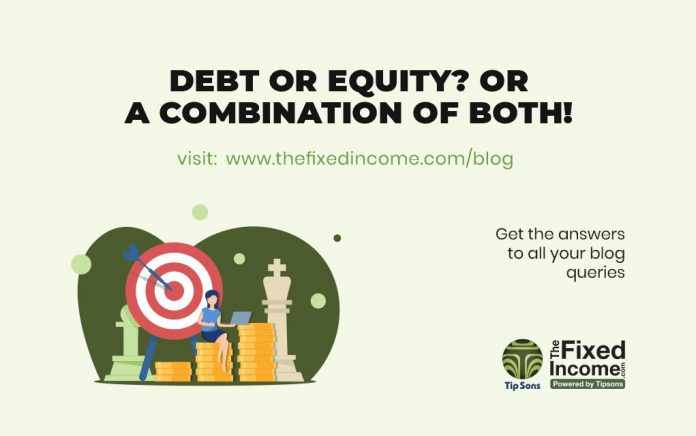Debt vs Equity: Understanding the Difference
Which one are you: a bondholder or a shareholder? A risk averse investor or a risk taker? To be honest, one doesn’t have to be either of these two. One can be both, and wear many more investing hats at the same time. From debt to equity, real estate to commodities, crypto to God knows what next!
But let’s look at debt and equity for now. Which one is your cup of tea!
Merits of Debt and Equity Investments
Debt or Equity? One makes you the creditor of a company, while the other makes you a shareholder of a company! Although a creditor is entitled to certain protections when it comes to settlement of funds, as opposed to a shareholder, it’s the shareholders who have more entitlements like voting rights or profit sharing.
Being a creditor, a debt investor has the first claim on the company funds should a company sell or go bankrupt and hence into administration or liquidation. Also as a lender of funds to a corporation or a government, a debt investor is entitled to regular and periodic interest/coupon payments on the money lent, plus the principal amount redeemed in full on maturity. There is an exemption to this rule in the case of zero-coupon bonds, where there are no coupon payments paid out as the bond is issued at a discount and redeemed at par.
Common debt instruments include bonds, fixed deposits, and debentures, and are referred to as fixed income securities.
An investor in a debt security has minimal risk exposure as a debt instrument is least volatile to market movements. As a result, the returns on debt investment are comparatively lower but far safer. Returns on debt instruments or fixed income securities in the current market scenario have been ranging between 6% to 12% on government or corporate bonds, and around 3% to 6% on fixed deposits. In terms of taxation, regular coupon or interest income is subject to income tax as per an investor’s tax slab and certain instruments are subject to short or long term capital gains.
A shareholder, on the other hand, has the benefit of profit sharing via dividend payouts, but is also exposed to higher risk as opposed to a bondholder or a debt investor.
Equity investing includes an investment in the stocks of a company, and thereby allowing an investor to become a shareholder of the company. Though a shareholder benefits from the growth of a company’s value, a stock of a company or the movement in the value of a stock of a company is highly volatile and subject to market volatility. Which increases the risk exposure of a shareholder.
In a nutshell, both debt and equity have their own merits. An investor may choose to invest in either of the both, or in a combination of the both. The latter would allow diversification, and also an opportunity to mitigate the overall risk. It’s ideal to not put all the eggs in one basket.
If you ask me, the best investment is in gaining knowledge: continuously investing in one’s own knowledge base by gaining enriching experiences in life and by continually educating your own self and your kids. It’s priceless!





















